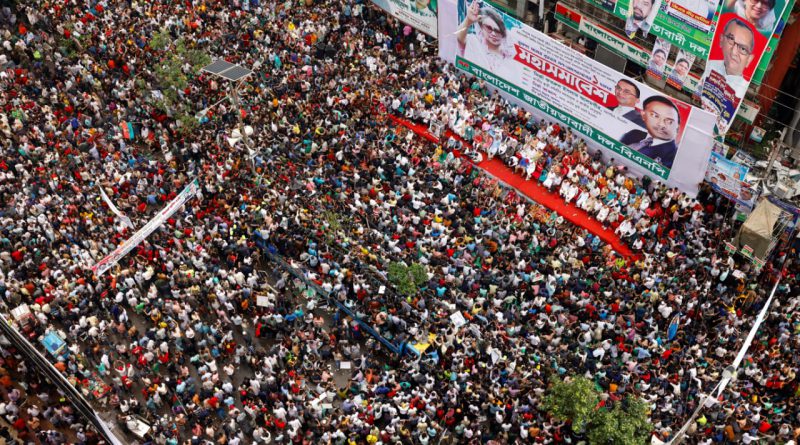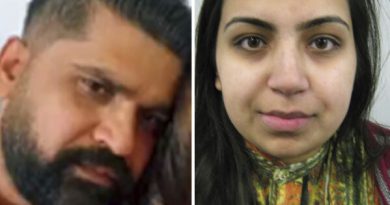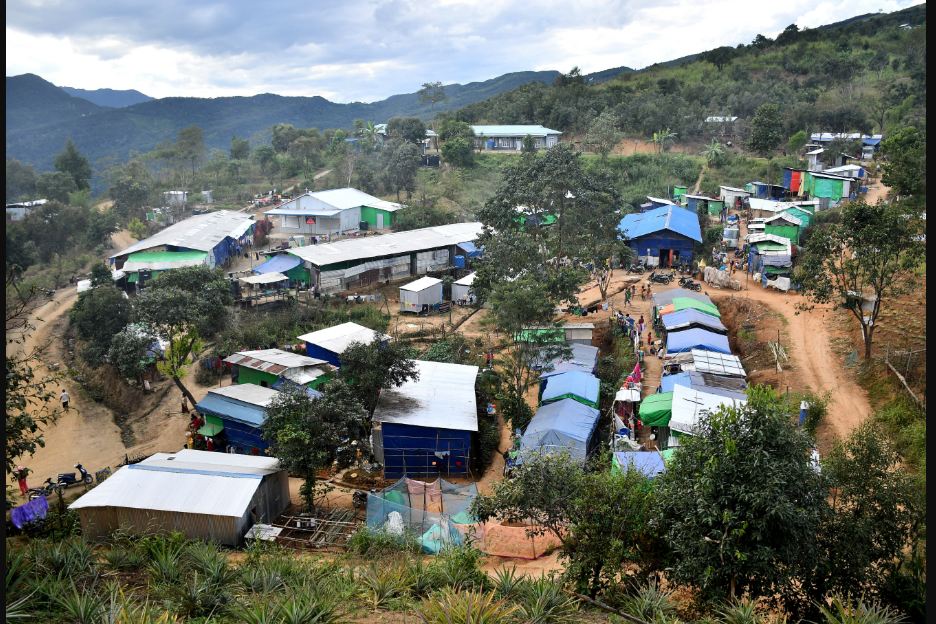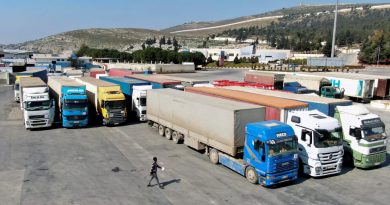Bangladesh opposition holds protests to demand resignation of PM
Dhaka (Reuters) – Tens of thousands of supporters of Bangladesh’s main opposition party rallied in the capital on Friday to demand Prime Minister Sheikh Hasina’s resignation and call for general elections to be held under a caretaker government.
The main opposition party, in disarray since its leader Khaleda Zia was jailed in 2018 on graft charges, has held bigger protest rallies in recent months, drawing thousands of supporters amid mounting anger over the cost of living.
The Bangladesh Nationalist Party (BNP) has been calling for Prime Minister Hasina to step down and for the next election, due in January 2024, to be held under a neutral caretaker government – a demand her government has rejected.
“BNP’s one-point demand is the restoration of democracy in Bangladesh…. This can only be achieved through a free and fair election, which is not possible under the current regime,” senior BNP leader Abdul Moyeen Khan told Reuters.
“This government must resign and make way for a free and fair election under an interim government, only through that we can restore a people’s government in Bangladesh,” he said.
BNP supporters joined the rally in Dhaka from different parts of the country amid allegations of obstructions by police.
“We are here for people’s right to vote,” said Sana Ullah, a BNP supporter, who joined the rally from the port city of Chittagong.
‘Obstacles’
“The government tried hard to prevent the rally, but it did not succeed. Our leaders and activists defied all obstacles and came to make the rally a success,” BNP leader Mirza Abbas said, adding that at least 1,000 supporters had been arrested.
The police said only that some people were arrested because they could not provide valid ID.
The opposition and rights groups have criticised the government for cracking down on anti-government protests.
In May, the United States said it was adopting a new policy to restrict visas for Bangladeshis who undermine the democratic election process at home.
Concern flared after accusations of vote-rigging and the targeting of the political opposition marred national elections in 2014 and 2018. Hasina’s government has denied those charges.
Hasina, who has kept tight control of the South Asian nation since coming to power in 2009, has been accused of human rights violations, of destroying the freedom of the press and suppressing dissent as well as jailing critics including many supporters of the main opposition.
Hasina’s arch rival and former premier Khaleda was allowed to stay at home in Dhaka under a special provision since the outbreak of the COVID-19 pandemic but was barred from joining any political activity.
“Sheikh Hasina is there, Sheikh Hasina will remain,” an aged ruling party supporter shouted as he took part in a rally called by Hasina’s Awami League party on the same day to counter the opposition protests.



